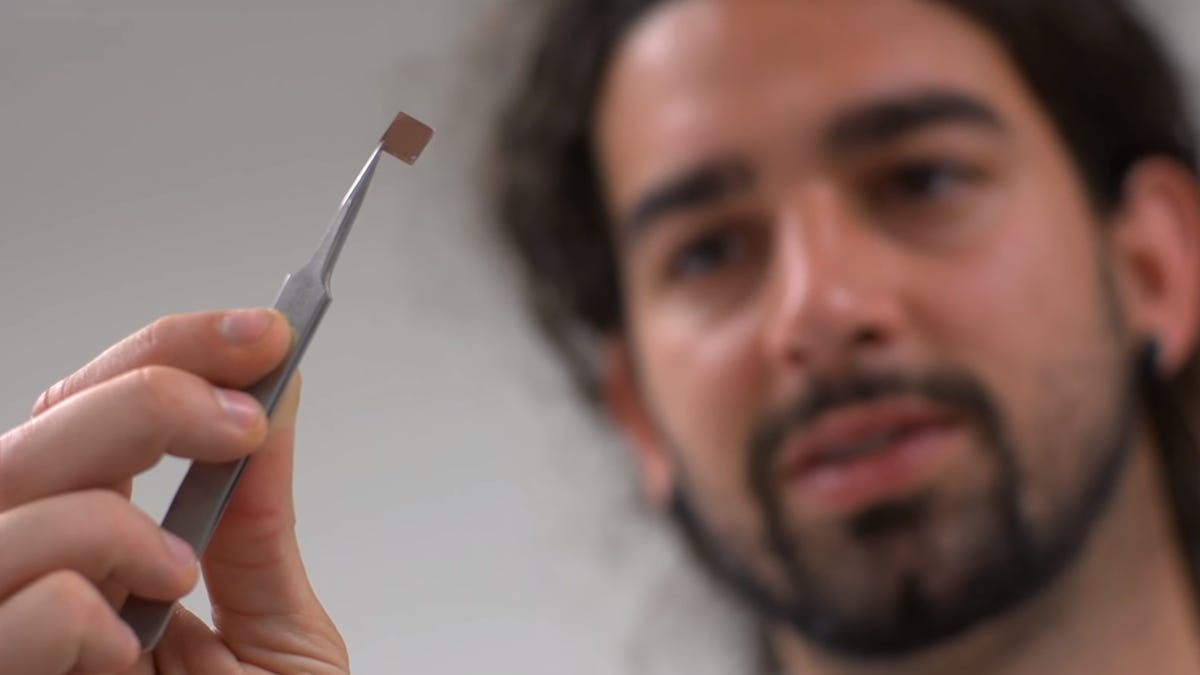Elon Musk calls 'BS', but new nanosensors may help find life on distant planets
The “ultra-small sensors” could be used in wearable diagnostic devices, agriculture and even in the search for life in space

Zelio Fusco with one of the nanosensor plates.
Elon Musk recently tweeted that nanotechnology is "100% synonymous with bs", but try and tell that to researchers at The Australian National University (ANU).
A paper published in Advanced Materials on June 4 details new optical nanosensors, 50 times thinner than a human hair -- enabling them to be incorporated into wearables that could one day help doctors detect and manage chronic disease.
"This exciting invention shows that we are on the cusp of designing the next generation of wearable devices that will help people to stay well for longer and lead better lives," explains associate professor Antonio Tricoli, head of the Nanotechnology Research Laboratory at ANU.
"This is like putting a lab in a watch."
The sensors combine gold nanodisks with "fractal clusters" -- tiny, branching molecules sensitive to changes in light -- allowing them to detect very small concentrations of organic compounds. For now, it's a proof of concept but in the future, the technology could be used to detect the molecules you breathe out or the diverse array of gases that emanate from your skin.
The research team create nanostructures "50 times thinner" than a human hair.
Being both "ultra-small" and "ultra-light", the new optical sensors are incredibly versatile, allowing them to be incorporated into a range of devices that take their applications beyond personalized diagnostic medicine.
"Our sensors could be developed to detect whether a plant has a particular disease or a fruit is ripe, for example," said Zelio Fusco, a PhD candidate working on the new sensors.
They could even be used to better understand the cosmos and search for extra-terrestrial organisms.
"They could potentially be fitted to micro-satellites or tiny spacecraft that could help in the hunt for life on distant planets," said Dr Mohsen Rahmani, a researcher at ANU's Research School of Physics and Engineering.
With that kind of versatility, there's a chance that one day the new nanosensors could be placed aboard a spaceship -- maybe even one bearing the SpaceX brand. What would Elon think of that?
Tech Enabled: CNET chronicles tech's role in providing new kinds of accessibility.
The Smartest Stuff: Innovators are thinking up new ways to make you, and the things around you, smarter.

